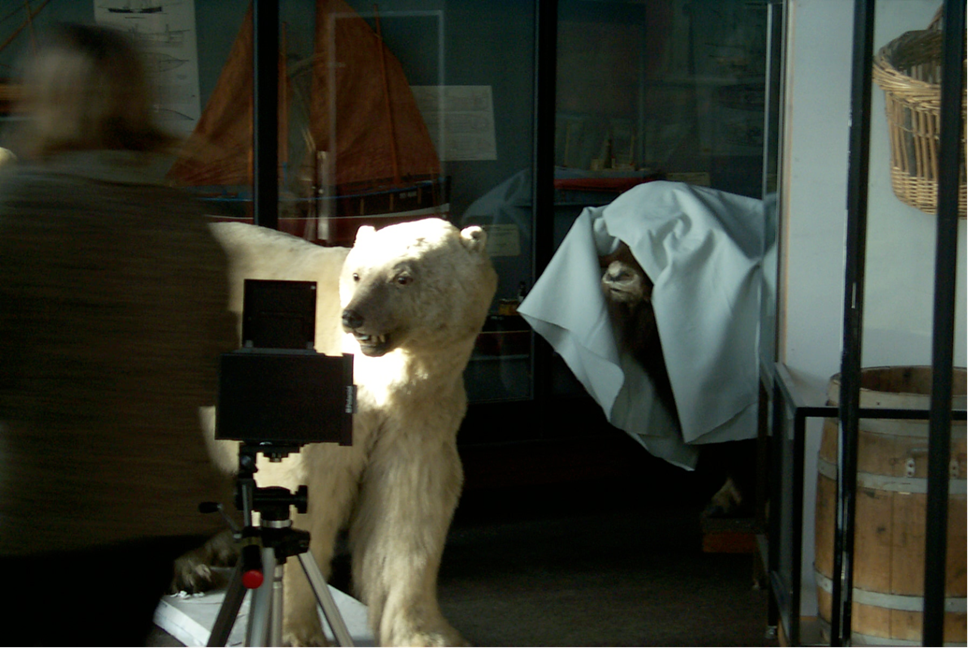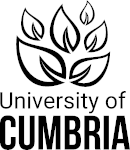
Spotlight on 'real world' research with podcast first
The University of Cumbria has joined the conversation with its first-ever series of podcasts highlighting ‘real-world’ research.
The ‘Innovation Conversation’ is the University of Cumbria’s first podcast series featuring conversations with some of the institution’s leading lights in research and innovation talking passionately about their expertise and motivations.
Despite its location in Northwest England, the research is addressing some of the world's most urgent global issues, including social welfare, climate change, sustainable development, and biodiversity loss.
Seven podcasts are available to stream initially via the University of Cumbria’s Spotify channel. Subjects range from the enormous impact insects have on the world to sustainable development lessons from Africa.
A taster of the series can be heard here: https://open.spotify.com/episode/0Ik8RRbsGLemV0qh5ph86b
Interim Head of Research, Jamie Hodge, said the premise of the new series is to showcase the high calibre of research taking place at the university. He said:
“Despite being a young institution, we are punching well above our weight in terms of the impact our research is having in the real world, which has resulted in our academics advising Government and even the United Nations. This series is our first foray into podcasting as it is an easy format to share knowledge. It may surprise some listeners to hear about some of the incredible work taking place here at the University of Cumbria.”
Pictured: Jamie Hodge, Interim Head of Research at the University of Cumbria.
Since 2015, UK podcast listenership has increased year on year, with an estimated 21.2million people listening to podcasts in 2022 according to data insights company, Statistica.*
The ‘Innovation Conversation’ is tapping into this growing appetite for podcasts by sharing informal conversations with leading academics that give a flavour of the vast diversity of research underway at the institution.
In the episode ‘The artists documenting Iceland’s displaced polar bears’, artist, Professor Mark Wilson, details his 3-year collaborative research project, Visitations: Polar bears out of place (2019-2022), examining how humans and polar bears interact on the bears' periodic and unpredictable arrivals in Iceland, in the wider context of global warming. His acclaimed work previously went on show at two major solo Icelandic art exhibitions, one opened by Iceland’s first lady, the other a five-room epic funded by Icelandic Research Council, Rannis.
Mark is currently in Iceland ahead of a symposium hosted by Reykjavík Art Museum, which will act as the closing event for Mark and his research partner, Bryndís Snæbjörnsdóttir's**, award-winning project, Visitations: Polar Bears Out of Place (2019-22). He also has a related exhibition, Visitations: From Greenland to Iceland to Alaska in Borderless Arctic Seas, currently on display at the Anchorage Museum, Alaska for the next 12 months.
The podcast comes as the finale to David Attenborough's Frozen Planet II series aired at the weekend featuring the plight of polar bears and how dwindling sea ice is attracting them to human sources of food.
Pictured: Professor Mark Wilson
Pictured: Dr Liz Bates
Dr Liz Bates is the first UK academic to widely publicise the fact that men can be victims of domestic abuse too and has done much to sound the alarm in the media and with Government on this topic. However, in her podcast ‘Dispelling myths surrounding male victim domestic abuse’, she maintains there is still much to be done to raise awareness of this often-neglected issue.
There are also episodes featuring ‘whale whisperer’, Associate Professor Volker Deecke, who offers insights into whale conversations and noise pollution and how international artist, Professor Robert Williams, is considering the problematic issue of nuclear waste in West Cumbria.
Pictured: Associate Professor Volker Deecke
The series comes as the University of University recently announced that 42% of its research was recognised as ‘internationally excellent’ or ‘world leading’ according to the Research Excellence Framework (REF). REF is the system used to assess the excellence of research from the UK’s higher education institutions.
The University of Cumbria’s approach to research is to make it relevant and applicable to the real world, resulting in initiatives that have improved the accuracy of medical imaging interpretation (such as for cancers), led to new approaches to outdoor residential learning benefitting thousands of young people, and influenced international rewilding guidelines.
Details of the university’s research and innovation programmes can be found on its research webpages, and for students wishing to consider postgraduate research study (such as PhDs) the University of Cumbria regularly updates a list of academic supervisors.
The ‘Innovation Conversation’ is available to stream on Spotify now. Each podcast varies in length from between 9 and under 20 minutes.
Notes to editors
Notes to editors
University of Cumbria's Spotify channel: https://open.spotify.com/show/4VgdgVaf2UrussfJ5PPTrD
Taster: https://open.spotify.com/episode/0Ik8RRbsGLemV0qh5ph86b
*UK: podcast reach 2017-2026 | Statista
** Bryndís Snæbjörnsdóttir is also a visiting professor at the University of Cumbria
Dr Alex Dittrich
Insects: the minuscule creatures creating an enormous buzz
Some of the world’s smallest creatures have the biggest impact on all life: one reason why Dr Alex Dittrich has a passion for invertebrates.
As senior lecturer and programme leader for Zoology at the University of Cumbria, Dr Dittrich has led projects which are having a significant impact on life closer to home and is excited at opportunities on offer to students as part of their studies at Cumbria.
In this edition of the Innovation Conversation from the University of Cumbria, he explains more about the work that’s already underway and his hopes for the future of this vital area of study.
Duration: 9 mins 13 secs
Dr Liz Bates
Dispelling myths surrounding male victim domestic abuse
Dismissing stereotypes around the psychology of violent behaviour has been at the forefront of work by Dr Elizabeth Bates that has seen her become one of the most prolific writers in this area.
Specialising in research around male victims of female partner violence, the current chair of the male psychology section of the British Psychological Society Dr Bates says it’s still not widely recognised that men can be victims of domestic violence.
As she explains in this edition of the Innovation Conversation from the University of Cumbria, there’s an increasing interest in this important work which means students benefit from cutting edge research.
Duration: 11 minutes 28 seconds
Professor Robert Williams
The unlikely fusion of art and nuclear power
Linking art and the nuclear industry may seem an unlikely collaboration but it is one that has proved productive for Professor Robert Williams. As a Professor of Fine Art, Research Lead at the University of Cumbria Institute of the Arts, and Chair of the ARI (Arts Research Initiative), Professor Williams has worked for over a decade on a project that has gained support on both sides of the Atlantic. As he explains in this edition of the Innovation Conversation from the University of Cumbria, his work has resulted not only in thought-provoking research but also helped gain access to an influential group considering the future of nuclear waste.
Duration: 13mins
Associate Professor Penny Bradshaw
How English literature can tackle global problems such as climate change
Cumbria and the Lake District in particular has long found a home in the sights of writers for generations. Poets, playwrights and novelists have all used the fells and lakes as settings for work that has become known throughout the world. But, like the rest of the world, this area is changing. Efforts to spread the word about contemporary Cumbria are being led by the university. Dr Penny Bradshaw is Associate Professor of English Literature and Programme Lead for the MA Literature, Romanticism and the English Lake District. As she explains in this edition of the Innovation Conversation from the University of Cumbria, newly commissioned work may well help reach a whole new audience.
Duration: 18 minutes 11 seconds
Professor Mark Wilson
The artists documenting Iceland’s displaced polar bears
Award winning work by university academics may not be that unusual but when the award is made to a visual art research project examining how polar bears interact with humans in Iceland it becomes more significant. Professor Mark Wilson is a Professor of Fine Art at the University of Cumbria. His collaboration with Professor Bryndís Snaebjörnsdóttir saw the pair receive the Icelandic Artists of the Year Prize 2022 for their exhibition Visitations at Akureyri Art Museum. The annual prize recognises outstanding visual artists and their exhibitions.
In this edition of the Innovation Conversation from the University of Cumbria, Professor Wilson explains more about the aim of the project and how he hopes it will contribute to a growing body of knowledge concerning human and non-human relations in a time of global warming.
Duration: 17 minutes 26 seconds
Dr Volker Deecke
How listening to killer whale conversations is securing the species’ future
For three decades the University of Cumbria’s Associate Professor in Wildlife Conservation has had a fascination with the largest mammals on the planet. His knowledge of killer whales is forensic; his enthusiasm for his subject infectious. And as awareness of the need for the world’s governments to take note of climate change and the impact human activity has on wildlife grows, Dr Deecke hopes his research will help inform changes in behaviour which will have a major impact on the sustainability of these gentlest and impressive of species.
In this edition of the Innovation Conversation from the University of Cumbria, he explains how digital eavesdropping on killer whales is helping change attitudes toward them.
Associate Professor David Murphy
Sustainable development: learning lessons from Africa
From St Johns Canada to Cumbria via years spent teaching and collaborating within several African countries, Dr David Murphy brings a wealth of experience to the university.
As Associate Professor of Sustainability and Collaborative Leadership, few can have recorded the range of experiences he has beginning at a time when ‘sustainability’ was a word few understood.
Now he’s bringing his expertise to a whole new community at a time when working together and forming meaningful partnerships is more important than ever.
In this podcast he talks about his international experience and how lessons learned in Africa are now being shared with University of Cumbria partners much closer to home.
Duration:15 minutes 28 seconds




